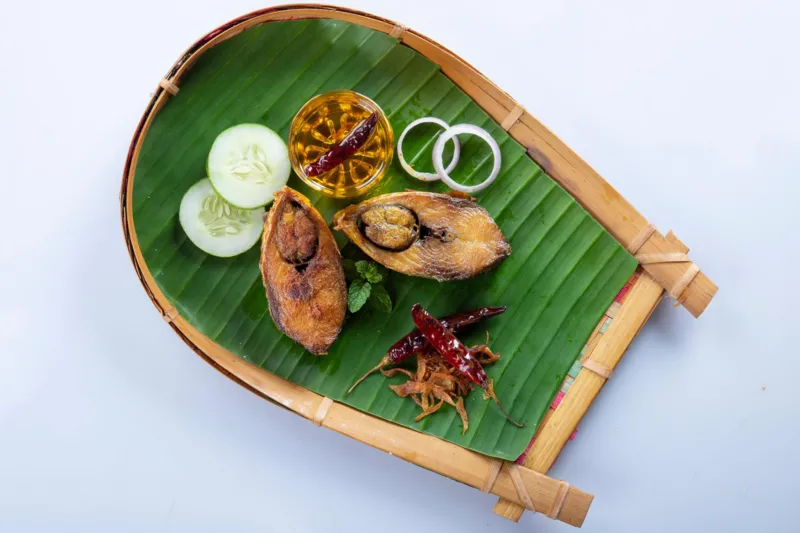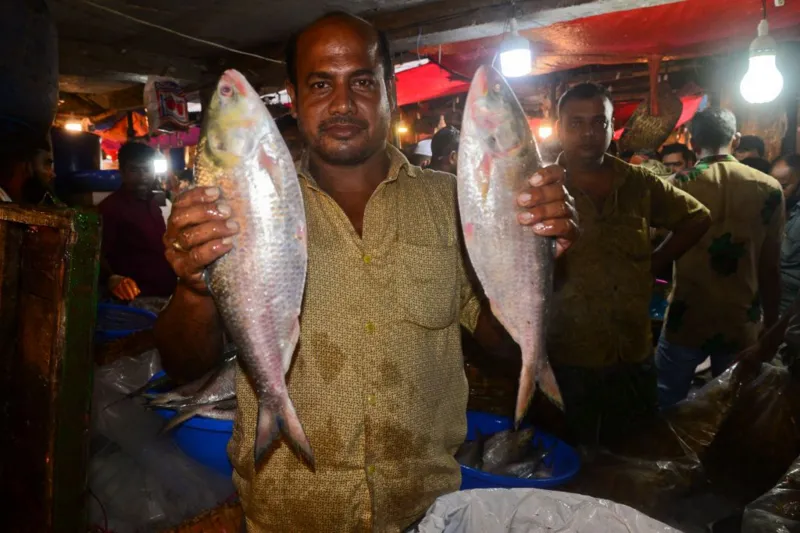India-Bangladesh Relations Strained Over Hilsa Fish Export Dispute
As millions in West Bengal prepare to celebrate Durga Puja, their biggest festival in October, they may face a shortage of their beloved hilsa fish. Bangladesh, the world’s largest producer of hilsa, has intensified its crackdown on exporting the fish to India, reinforcing a long-standing ban. This renewed effort comes a month after a new government took office in Dhaka, aiming to make the prized fish more accessible to Bangladeshi consumers.
Farida Akhter, adviser to the Bangladesh ministry of fisheries and livestock, stated that despite the existing ban, a significant amount of hilsa was still reaching India. The new government is determined to halt this cross-border movement entirely. This stance marks a departure from the previous administration’s “hilsa diplomacy,” where former Prime Minister Sheikh Hasina often allowed hilsa exports to India during festival seasons as a gesture of goodwill.

Hilsa, while Bangladesh’s national fish, remains a luxury item affordable only to the rich and middle class. The government’s decision not to lift the export ban during Durga Puja this year is aimed at ensuring that Bangladeshis have better access to the fish. In previous years, Bangladesh permitted the export of 3,000-5,000 tonnes of hilsa annually during the festival.
Read Also: Huawei Reveals Phone That Folds in Three Places
The political context surrounding this decision is complex. Sheikh Hasina was dramatically removed from office on August 5 after weeks of student-led protests that escalated into nationwide unrest. Her continued presence in India has complicated Delhi’s efforts to build a strong relationship with the new interim government in Dhaka. For India, Bangladesh is a key strategic partner, vital for border security, especially in its northeastern states.

Bangladesh’s hilsa industry is significant, accounting for about 12% of the country’s total fish production and contributing around 1% to its GDP. Fishermen catch up to 600,000 tonnes of hilsa annually, with the majority coming from the sea. In 2017, hilsa was recognized as a geographical indicator for Bangladesh, further cementing its importance to the country.
Despite the export ban, hilsa prices have surged in the local Bangladeshi market. A 1.5kg hilsa now sells for around 1,800 taka ($15; £11.50), which is 150-200 taka higher than last year. Fishermen attribute this price increase to poor catches due to rough weather conditions, which have hindered their fishing expeditions in recent months.
The scarcity of hilsa will likely frustrate many Bengalis on both sides of the border, where the fish holds an almost sacred status. It’s celebrated for its versatility in cooking, often prepared steamed with mustard paste or lightly fried with spices. Food historians and writers have long praised hilsa for its physical beauty, tender flesh, and exquisite flavor.
The current situation highlights the delicate balance between domestic consumption and international relations. While the new Bangladeshi government aims to prioritize its citizens’ access to hilsa, this decision could potentially strain relations with India, particularly during a significant cultural event like Durga Puja.

The hilsa issue also underscores the broader challenges of resource management and food security in the region. As a migratory fish that moves between rivers and the sea, hilsa requires careful conservation efforts to maintain sustainable populations. The export ban and strict regulations are part of Bangladesh’s efforts to protect this valuable resource.
As the Durga Puja festival approaches, the impact of this policy change will be closely watched on both sides of the border. It remains to be seen how this will affect not only the availability of hilsa in West Bengal but also the broader diplomatic relations between India and Bangladesh. The situation serves as a reminder of how seemingly small issues like fish exports can have significant implications for international relationships and cultural traditions.





